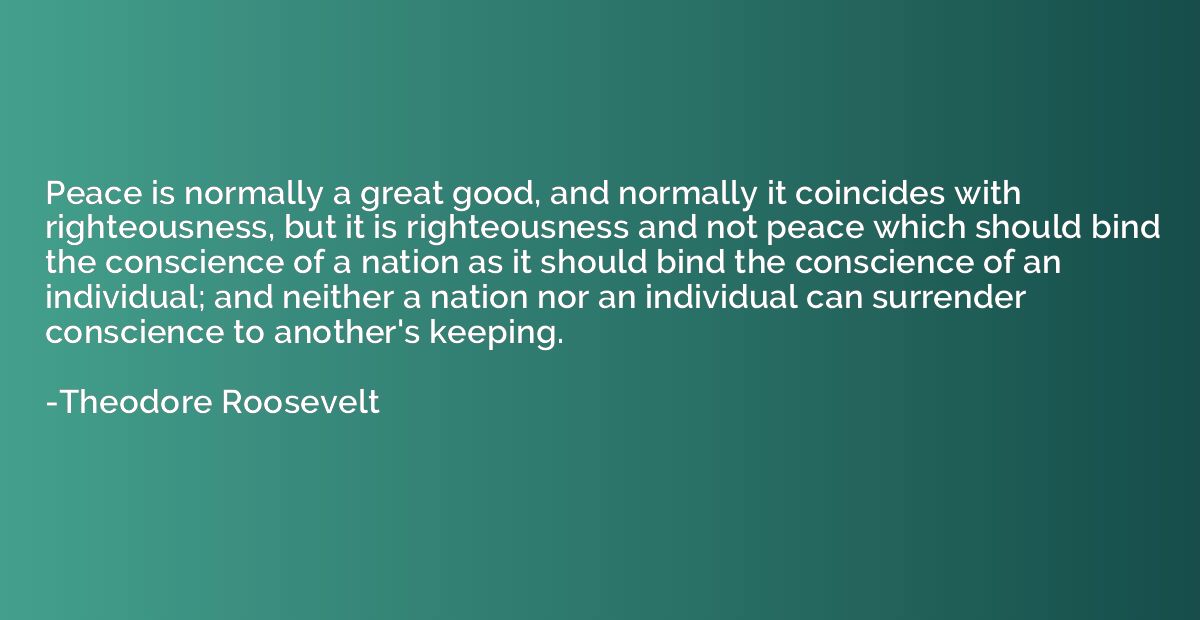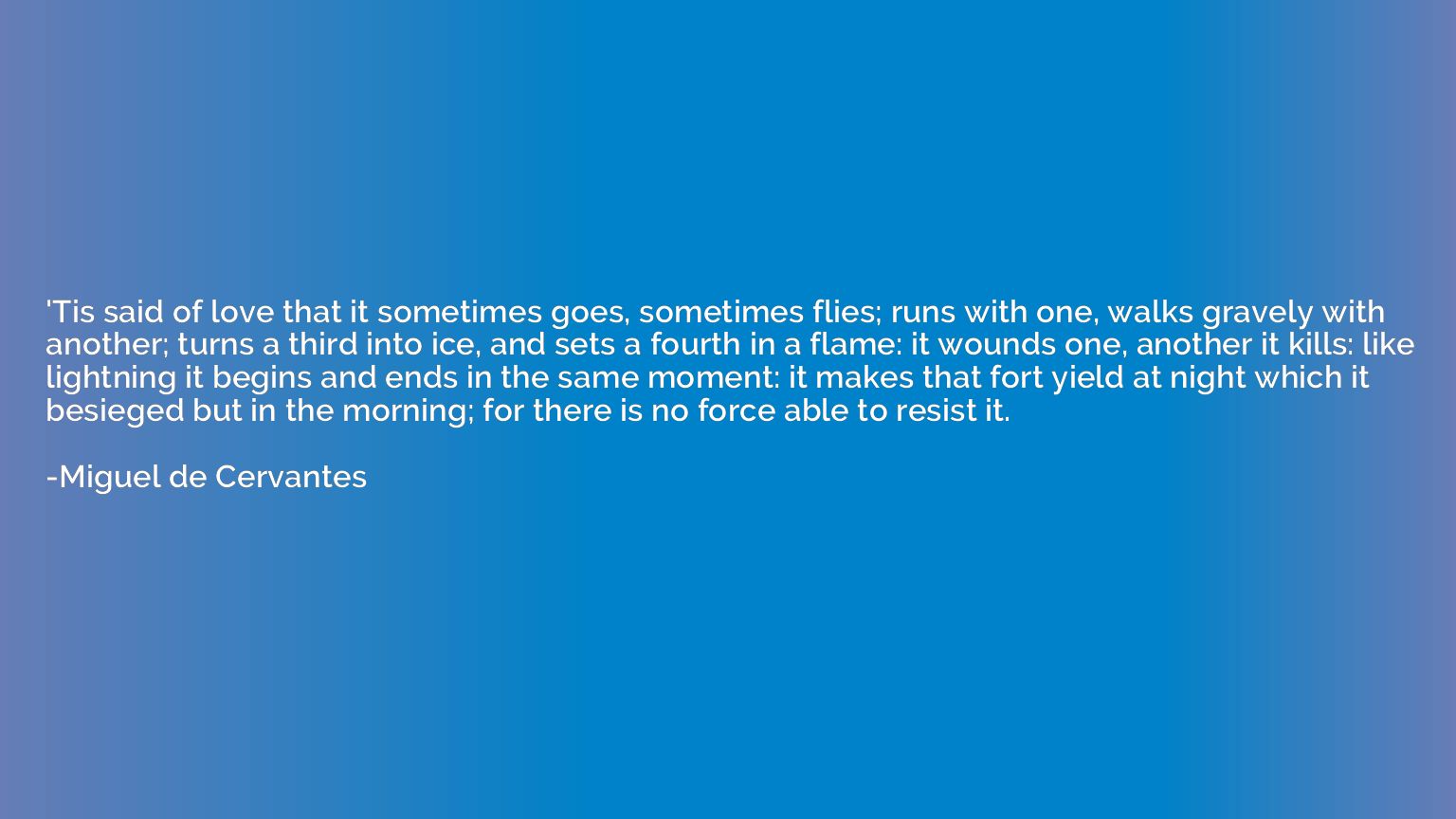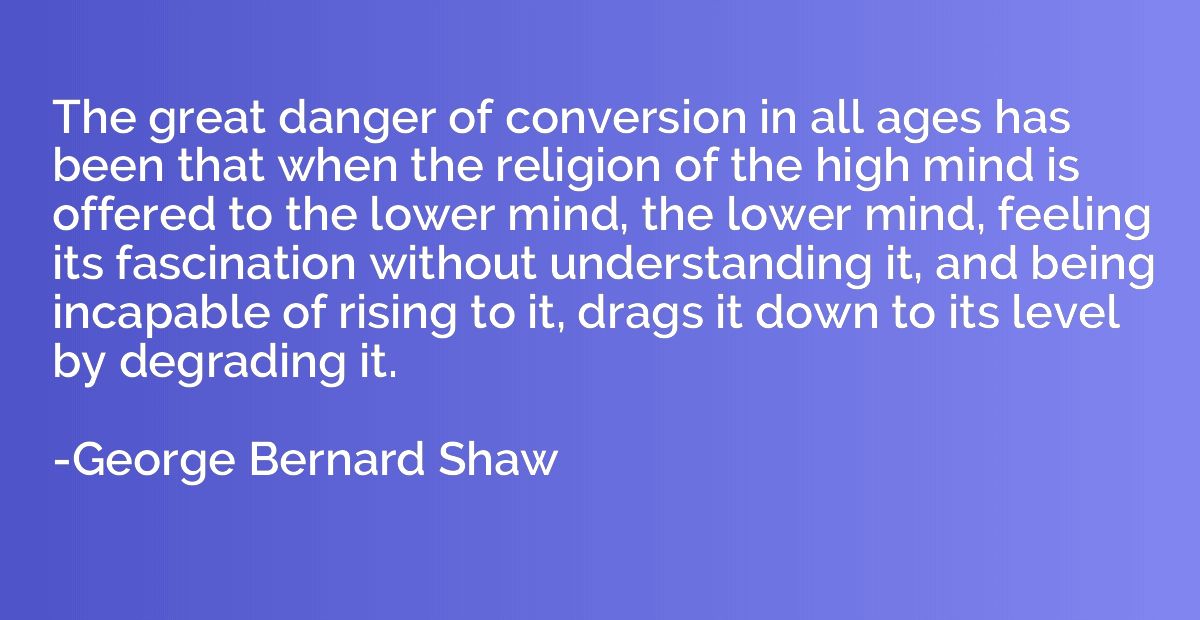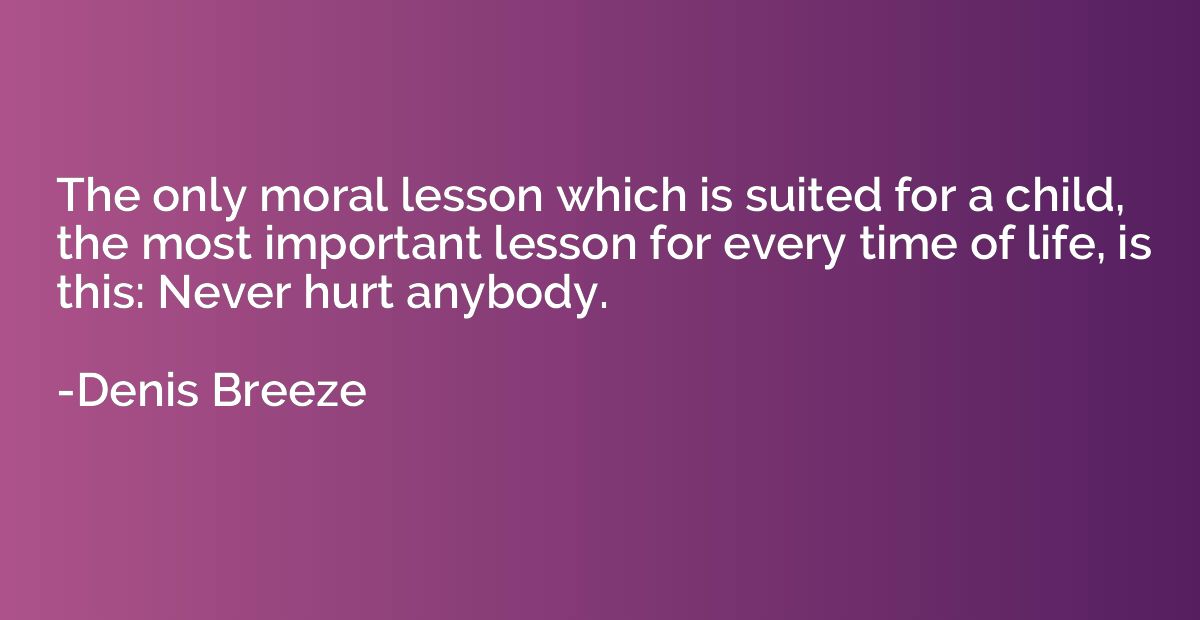Quote by Theodore Roosevelt
Peace is normally a great good, and normally it coincides with righteousness, but it is righteousness and not peace which should bind the conscience of a nation as it should bind the conscience of an individual; and neither a nation nor an individual can surrender conscience to another's keeping.

Summary
This quote highlights the importance of righteousness and conscience over peace. While peace is generally considered a positive outcome, the author asserts that righteousness should be prioritized and serve as the moral compass for both nations and individuals. Conscience, according to the quote, is a deeply personal and non-negotiable aspect one cannot entrust to others. It implies that inherent morals and principles should guide decision-making, even if it means foregoing temporary peace.














